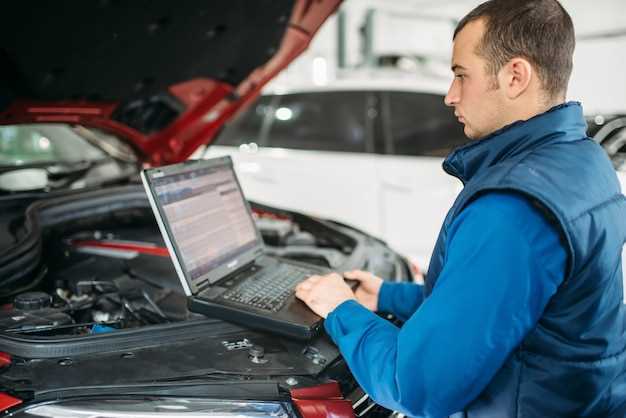
Engine knocking is a common but often misunderstood issue that can significantly affect the performance and longevity of high-performance engines found in exotic cars. This phenomenon occurs when fuel ignites prematurely in the combustion cycle, resulting in a “knocking” sound that can be detrimental to engine health. Understanding the reasons behind engine knocking is essential for maintaining the integrity of these advanced vehicles and ensuring they operate at peak performance.
The root cause of engine knock can often be traced back to the fuel being used. Exotic cars are typically designed to run on high-octane fuels that prevent premature ignition. Using lower-grade fuel can lead to a condition known as detonation, which is characterized by uncontrolled combustion that generates knocking noises. Recognizing the type of fuel that an engine requires is crucial for preventing this issue from arising.
In diagnosing engine knocking, several factors must be considered, including ignition timing, fuel quality, and engine temperature. Each of these elements plays a pivotal role in the combustion process and can contribute to knocking if not optimized. By carefully analyzing these components, car enthusiasts and technicians can identify the underlying causes of engine knock and take appropriate measures to resolve the issue, ensuring that these extraordinary machines continue to deliver the exhilarating performance they are known for.
Identifying Symptoms of Engine Knock in High-Performance Vehicles
Engine knock in high-performance vehicles is a critical issue that can lead to severe damage if not addressed promptly. One of the primary symptoms of engine knock is a distinct sound, often described as a metallic pinging or rattling noise, caused by improper fuel combustion. This sound typically becomes more pronounced under heavy acceleration or load, highlighting the need for immediate attention.
Another telling symptom is a noticeable decrease in engine performance. If a vehicle experiences a lack of power or responsiveness, especially during high-stress situations like racing or sudden acceleration, it may be an indication of engine knock. Drivers may also observe a decline in fuel efficiency, as the engine struggles to maintain optimal combustion quality when knocking occurs.
Vibration and rough running can also signal potential engine knock issues. Unusual vibrations felt through the steering wheel or the chassis while driving can suggest that the engine is misfiring, which is often linked to knock. Additionally, the engine may exhibit irregular idling, fluctuating RPMs, or stalling, further emphasizing the need for a thorough diagnosis.
Monitoring the engine warning lights is crucial, as modern high-performance vehicles are equipped with sophisticated onboard diagnostics systems. If the check engine light illuminates, it is essential to investigate potential knock-related issues promptly. Ignoring these warning signs can result in costly repairs and diminished engine longevity.
In summary, identifying symptoms of engine knock in high-performance vehicles requires careful attention to engine sounds, performance metrics, and warning indicators. Recognizing these symptoms early can prevent further damage and ensure the vehicle maintains its high-quality performance standards.
Understanding the Impact of Fuel Quality on Engine Performance
The quality of fuel plays a critical role in the overall performance and longevity of an engine, particularly in exotic cars that demand higher standards. High-quality fuel ensures optimal combustion, which is essential for maximizing power output and efficiency.
When inferior fuel is used, several issues can arise. Knocking, a common problem in high-performance engines, often results from improper fuel combustion. This can be exacerbated by low octane ratings found in subpar fuels, leading to pre-ignition and engine damage. Using fuel that meets the manufacturer’s specifications helps prevent these issues and maintains engine integrity.
Moreover, fuel quality also affects engine cleanliness. Impurities and additives present in lower-quality fuels can create carbon deposits, leading to reduced efficiency and potential mechanical failures. High-quality fuels typically contain detergents that help keep the engine clean, enhancing performance over time.
Additionally, the volatility of fuel, influenced by its quality, affects cold starting and performance in various temperature conditions. Quality fuels vaporize more readily, allowing for better combustion during startups, especially in colder climates. This is crucial for exotic cars that might be driven under diverse conditions.
In conclusion, investing in high-quality fuel is essential for maintaining optimal engine performance in exotic cars. It not only prevents knocking but also supports long-term engine health and performance efficiency.
Methods for Testing and Analyzing Engine Knock Severity
Diagnosing engine knock in exotic cars requires a multifaceted approach, as the severity of knock can significantly impact performance and longevity. One of the primary methods used is the application of onboard diagnostics systems, which can provide real-time data on engine performance parameters. This data includes knock sensor readings that help assess the severity of abnormal combustion events.
Another effective technique is utilizing acoustic analysis. This involves employing high-fidelity microphones or accelerometers to record engine noise. By analyzing sound frequencies and amplitudes, technicians can determine the knock intensity and differentiate it from normal operational sounds. Advanced software can process these recordings, offering insights into knock quality and its correlation with engine behavior.
Load testing is also crucial in evaluating engine knock severity. By subjecting the engine to various loads while monitoring parameters like vibrations and combustion pressures, mechanics can identify how knocking changes under different operating conditions. This method allows for a comprehensive understanding of engine response to knock, especially in high-performance scenarios typical of exotic cars.
Lastly, fuel quality assessment plays a vital role in knock diagnosis. Poor quality fuel can increase knock severity due to inconsistent combustion properties. By examining the octane rating and presence of additives, technicians can establish a direct link between fuel quality and knock occurrences. Ensuring the proper fuel type is critical for maintaining optimal engine performance and minimizing knocking risks.
Choosing the Right Fuel for Exotic Car Engines
Selecting the appropriate fuel for exotic car engines is crucial for optimizing performance and preventing engine knock. Exotic cars often feature high-performance engines designed to operate at specific octane levels. Using fuel with insufficient octane can lead to premature combustion, known as knocking, which can severely damage an engine over time.
Quality fuel is essential; not all fuels are created equal. High-quality fuels contain detergents and additives that help prevent deposits on fuel injectors and valves, ensuring a clean combustion chamber. This cleanliness aids in maintaining optimal engine performance and efficiency, reducing the chances of knock.
When choosing fuel, always consult the manufacturer’s recommendations. Many exotic cars require premium fuel with a minimum octane rating of 91 or higher. Some high-performance models might even need specialized blends designed for racing applications. Ignoring these specifications can result in inefficient combustion, increased engine temperature, and ultimately, knocking.
Additionally, consider the fuel sourcing. Fuels from reputable stations are less likely to contain impurities that could lead to suboptimal engine performance. Using quality fuels not only enhances power output but also contributes to better fuel economy, which is vital for any exotic car owner seeking performance and reliability.
Common Causes of Engine Knock in Luxury Sports Cars

Engine knock, often characterized by a distinct pinging or knocking noise, can significantly affect the performance and longevity of luxury sports cars. Understanding the common causes of this issue is crucial for owners who desire optimal performance from their high-end vehicles.
Here are the primary factors contributing to engine knock:
- Poor Quality Fuel: The octane rating of fuel plays a vital role in preventing engine knock. Using low-quality fuel with insufficient octane can lead to premature ignition, resulting in knocking sounds. Luxury sports cars typically require higher-octane fuels to maintain optimal performance and avoid knocking issues.
- Incorrect Timing: The ignition timing is another critical factor. If the timing is too advanced, it can cause the air-fuel mixture to ignite too early in the combustion cycle, leading to knock. Properly calibrated timing is essential to minimize this possibility.
- Carbon Build-Up: Over time, carbon deposits can accumulate in the combustion chamber and on the spark plugs. This build-up can create hot spots that trigger knocking by igniting the fuel-air mixture prematurely. Regular maintenance can help mitigate this risk.
- Overheating: Excessive engine temperatures can lead to knocking due to decreased knock resistance. Cooling systems must function properly to prevent overheating, which may require checking coolant levels and the integrity of the cooling system.
- Lean Air-Fuel Mixture: A mixture that is too lean (not enough fuel relative to air) can cause knocking. This condition can result from malfunctioning fuel injectors or intake air leaks. Ensuring the correct air-fuel ratio is crucial for optimal combustion.
- Worn Engine Components: As components such as pistons and bearings wear, they can alter the dynamics of the combustion process, potentially leading to knocking. Regular inspection and timely replacement of worn parts can help preserve engine health.
Addressing these common causes promptly can help preserve the performance and reliability of luxury sports cars, ensuring that they continue to deliver the exhilarating driving experience expected from them.
Recommended Maintenance Practices to Prevent Engine Knocking

Preventing engine knocking in exotic cars requires diligent maintenance practices focused on fuel quality, engine health, and component integrity. By following the recommended practices outlined below, you can help ensure your vehicle runs smoothly and efficiently.
| Maintenance Practice | Description |
|---|---|
| Use High-Quality Fuel | Always fill your tank with premium fuel that meets the manufacturer’s specifications to reduce the risk of knocking. High-octane fuels provide better resistance against pre-ignition. |
| Regular Engine Tune-Ups | Schedule tune-ups at regular intervals to check ignition timing, spark plugs, and engine performance, ensuring everything is in optimal condition to prevent knocking. |
| Monitor Engine Temperature | Keep an eye on your engine’s temperature gauge. Overheating can exacerbate knocking; therefore, ensure your cooling system is functioning properly. |
| Oil Changes | Replace engine oil regularly with high-quality synthetic oil to maintain proper lubrication, which helps to reduce friction and engine noise, including knocking. |
| Fuel System Cleaning | Periodically clean the fuel injectors and lines to ensure that fuel delivery remains efficient and free from blockages, which can contribute to knocking. |
| Inspect and Replace Filters | Regularly check and replace air, fuel, and oil filters to maintain adequate airflow and fuel quality, ensuring a clean burn and reducing the potential for knocking. |
Implementing these maintenance strategies will significantly lower the risk of engine knocking, ensuring your exotic car remains reliable and performs at its best.
